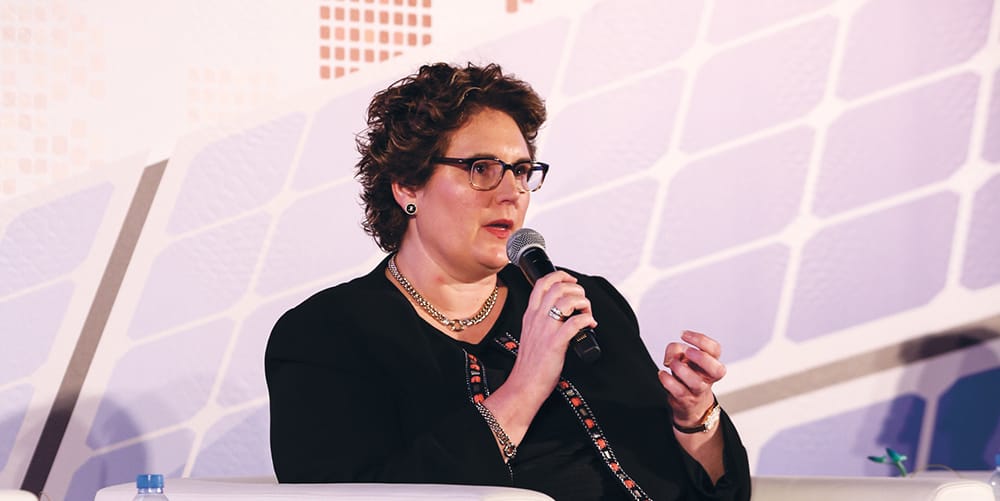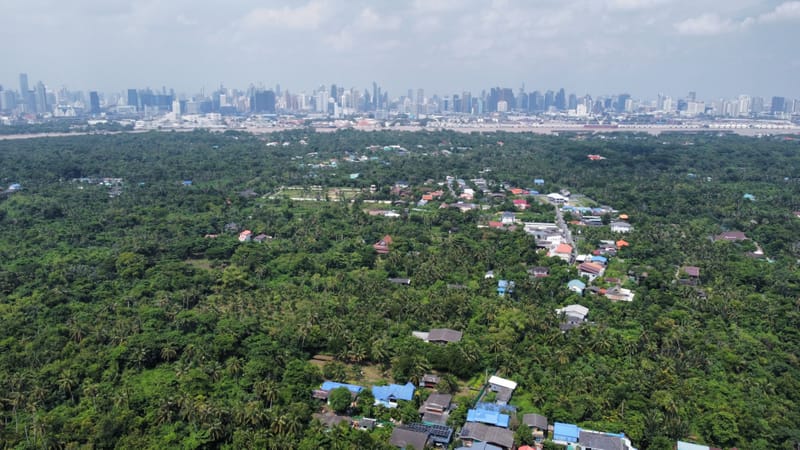
Nicole Iseppi has a high-ranking job with the world’s largest independent energy company, ENGIE. She travels the world and meets heads of state and industry leaders. However, it’s not the accolades that motivate her, but a desire to “give back” and contribute to wider society.
Iseppi, who is ENGIE’s associate director of strategy, economic development and communication for global generation, graduated from Monash University in 2000 with a Bachelor of Law and Bachelor of Arts, with a double major in strategic management and Japanese studies.
She chose Monash precisely because law students had to undertake a second degree. “I always wanted to do law,” she says. “But I always had a very commercial mindset, too.”
Iseppi advises on and manages strategy, financing, project development and risk assessment for global generation for the French multinational, which is committed to a business model enabling it to move to a low-carbon-generation portfolio.
She’s also a project and legal director for the Terrawatt Initiative, a global, independent, non-profit foundation set up following the 2016 COP21 Paris Agreement to promote and accelerate international solar and renewable development, and help achieve the United Nations Sustainable Development Goals.
“Energy is about providing a core basic need,” she says. “As without energy, you can’t put the light on, you can’t cook, you can’t study and get a decent education, you can’t run a business and earn a living.
Even today, in 2018, there are nearly 1.2 billion people in the world with still no access to energy.
“So while energy ticks all my boxes of interests in the law, financing and problem-solving, it’s also my way of contributing to the bigger community, of helping societies to progress in terms of energy supply and security. That’s one of the core principles I learned from Monash, as well as from my own family background.”
Since landing her first job at leading Australian law firm Freehills, Iseppi has focused on energy infrastructure. From Freehills she moved to Tokyo, as a senior legal and strategic adviser to the government-owned Japanese Bank for International Cooperation, a major global energy finance lender.
She joined ENGIE (then called GDF SUEZ) in 2010, as global team leader for international financing agreements and deputy general counsel for the South Asia, Middle East and African regions, and took up her current position in 2016.
Along the way, Iseppi has amassed numerous global awards, including Global Energy and Natural Resource Adviser of the Year 2018, being named in the Global Game Changers Index 2018, and Global Energy Lawyer of the Year for 2017 and 2018.
She delivered the keynote address at the 2017 Global Solar Leaders Summit and was invited to speak at the G20 first annual infrastructure meeting in 2018. Iseppi believes we’ve entered a “new industrial revolution”, based on what she calls the new “3D” world, focused on decentralisation, decarbonisation and digitalisation.
Renewable energy, she notes, can provide certain countries and communities with not only access to low-cost power, but also for many, the ability for the first time to be “energy-independent”.
Monash, she says, gave her “access to amazing academic minds” and encouraged her to “always think outside the box, which is very much part of the professional I’ve become”.
Iseppi gave a guest lecture at Monash earlier in 2018 on the future of energy, and also toured the campus. “I met some of the students, and I was really inspired,” she says. “I feel very confident that we’ve got some wonderful minds that are going to take this industry, and the next generation, forward.”





